Filter by

Advanced Microsystems for Automotive Applications 2015: Smart Systems for Gre…
This edited volume presents the proceedings of the AMAA 2015 conference, Berlin, Germany. The topical focus of the 2015 conference lies on smart systems for green and automated driving. The automobile of the future has to respond to two major trends, the electrification of the drivetrain, and the automation of the transportation system. These trends will not only lead to greener and safer drivi…
- Edition
- Ed. 1
- ISBN/ISSN
- 978-3-319-20855-8
- Collation
- XI, 275
- Series Title
- Lecture Notes in Mobility
- Call Number
- 388.31 ADV a

Bucking Conservatism Alternative Stories of Alberta from the 1960s and 1970s
With lively, informative contributions by both scholars and activists, Bucking Conservatism highlights the individuals and groups who challenged Alberta’s conservative status quo in the 1960s and 70s. Drawing on archival records, newspaper articles, police reports, and interviews, the contributors examine Alberta’s history through the eyes of Indigenous activists protesting discriminatory l…
- Edition
- -
- ISBN/ISSN
- 9781771992572.01
- Collation
- -
- Series Title
- -
- Call Number
- 368 pages
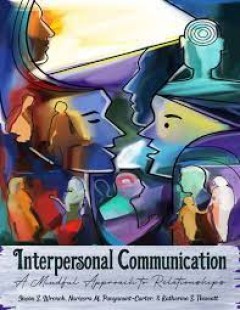
Interpersonal Communication : A Mindful Approach to Relationships
Interpersonal Communication: A Mindful Approach to Relationships helps readers examine their own one-on-one communicative interactions using a mindfulness lens. The writing team of Jason S. Wrench, Narissra M. Punyanunt-Carter, and Katherine Thweatt incorporates the latest communication theory and research to help students navigate everyday interpersonal interactions.
- Edition
- -
- ISBN/ISSN
- 9781942341772
- Collation
- -
- Series Title
- -
- Call Number
- 302.2 WRE i

Advanced Hybrid and Electric Vehicles: System Optimization and Vehicle Integr…
This contributed volume contains the results of the research program “Agreement for Hybrid and Electric Vehicles”, developed in the framework of the Energy Technology Network of the International Energy Agency. The topical focus lies on technology options for the system optimization of hybrid and electric vehicle components and drive train configurations which enhance the energy efficiency …
- Edition
- Ed. 1
- ISBN/ISSN
- 978-3-319-26305-2
- Collation
- XXII, 211
- Series Title
- Lecture Notes in Mobility
- Call Number
- 388.31 ADV a
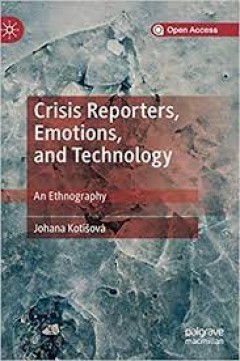
Crisis Reporters, Emotions, and Technology : An Ethnography
This open access book explores the emotional labour of crisis reporters in an original style that combines fictional and factual narrative. Exploring how journalists make sense of their emotional experience and development in relation to their professional ideology, it illustrates how media professionals learn to think and act within crisis situations. Drawing on in-depth interviews with journa…
- Edition
- -
- ISBN/ISSN
- 978-3030214272
- Collation
- -
- Series Title
- Crisis Reporters, Emotions, and Technology
- Call Number
- 302 KOT c
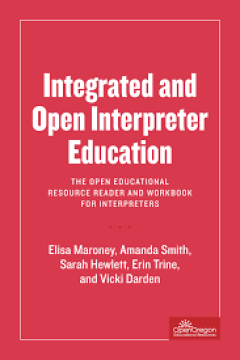
Integrated and Open Interpreter Education
This Open Educational Resource (OER) on interpreting offers authors and readers free and open access to current, relevant, easy-to-access, and free materials. The editors have created a space where emerging scholars in the field of signed language interpreting make contributions with the ability to revise as the interpreting studies discipline and the scholars, themselves, develop and change. T…
- Edition
- -
- ISBN/ISSN
- 9781636350257
- Collation
- -
- Series Title
- -
- Call Number
- 379 MAR i
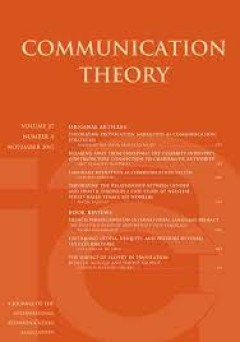
Communication Theory
This book is an introduction to communication theory — the theory of how humans share, encode, and decode what they know, what they need, and what they expect from each other
- Edition
- -
- ISBN/ISSN
- -
- Collation
- -
- Series Title
- -
- Call Number
- 302.2 OPE c
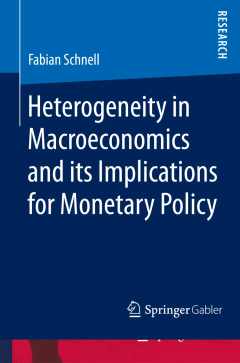
Heterogeneity in Macroeconomics and its Implications for Monetary Policy
Fabian Schnell develops a model indicating that by keeping real interest rates too low, monetary policy can distort the allocation of resources across firms and potentially delay economic recovery after a recession. This is a new channel of monetary policy that is especially relevant in view of “Quantitative Easing” programs. A second model focuses on the short-term implications of heteroge…
- Edition
- -
- ISBN/ISSN
- 978-3-658-09730-1
- Collation
- XVIII, 166
- Series Title
- -
- Call Number
- 330 SCH h

Developing New Products and Services
A central theme of this book is that there is, or should be, a constant struggle going on in every organization, business, and system. The struggle is fueled by the dynamic tension that exists between delivering Midas feature-rich versions of products and services using extravagant engineering and delivering low-cost Hermes versions of products and services using frugal engineering (see the…
- Edition
- -
- ISBN/ISSN
- -
- Collation
- -
- Series Title
- -
- Call Number
- 330 SAN d
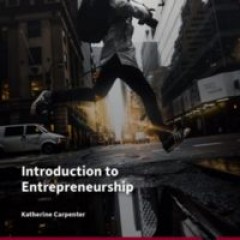
Introduction to Entrepreneurship
Learn about entrepreneurship and what makes entrepreneurs successful, all while developing your entrepreneurial skills
- Edition
- -
- ISBN/ISSN
- -
- Collation
- -
- Series Title
- -
- Call Number
- 338.04 CAR i
 Computer Science, Information & General Works
Computer Science, Information & General Works  Philosophy & Psychology
Philosophy & Psychology  Religion
Religion  Social Sciences
Social Sciences  Language
Language  Pure Science
Pure Science  Applied Sciences
Applied Sciences  Art & Recreation
Art & Recreation  Literature
Literature  History & Geography
History & Geography